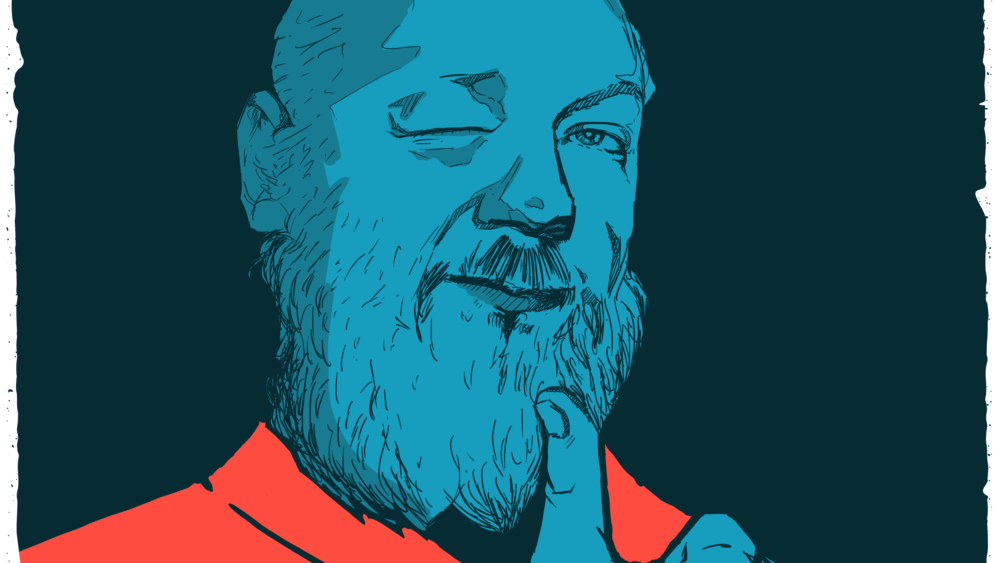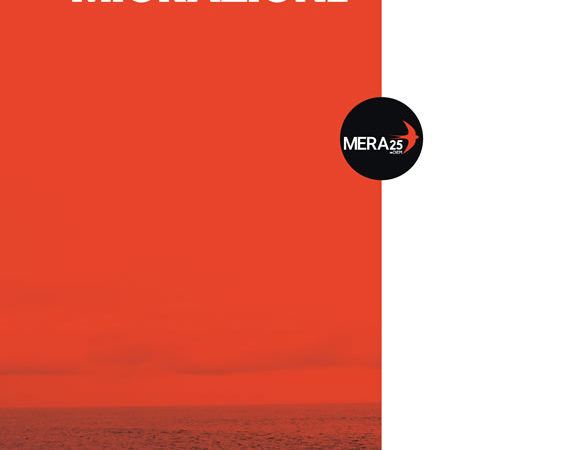10 years ago, a government case against WikiLeaks founder Julian Assange would have made global headlines.
Now, as Assange fights extradition to the United States from a courtroom in the United Kingdom, the same media organisations that worked with WikiLeaks to share stories of government misconduct remain silent about a case with an obvious negative impact on press freedom and democracy.
Find out what happened and how DiEM25 is committed to preventing this injustice against Assange, WikiLeaks, and the free press.
Slavoj Žižek, philosopher and DiEM25 Advisory Panel member, on Julian Assange.
How WikiLeaks came to be.
WikiLeaks began in 2006 out of a radical belief in transparency. The objective of the organisation was simple: create an online platform for whistleblowers to make secret documents publicly available.
Founder Julian Assange relied on prior experience in computer technology and privacy protection to build the organisation. This included partaking in the early developments of encryption technology, as well as providing ‘technical skills” to help authorities expose an underage sex ring in his native Australia.
This belief in encryption technology and exposing injustice made WikiLeaks standout to whistleblowers. They could now share classified documents and evade detection with WikiLeaks’ encrypted ‘dropbox’.
Working with the press.
WikiLeaks’ first big break came in April 2010 with the release of US Army files provided by intelligence officer Chelsea (then Bradley) Manning. Most striking from the release — hundreds of thousands of classified files from the US Army about the war in Iraq — was the “collateral murder” video of US soldiers fatally shooting 18 people, including two Reuters journalists.
WikiLeaks followed the Manning leaks with the Afghanistan War Logs (July 2010), the Iraq War Logs (October 2010), Cablegate (November 2010) and the Guantànamo files (April 2011).
The Cablegate Files marked the largest and most newsworthy of these releases. WikiLeaks worked with Western media organisations — including New York Times, Guardian, Der Spiegel, Le Monde, and El Pais — to release a quarter of a million US diplomatic cables. The information shared in these cables revealed US spying on the United Nations and other world leaders, tensions between the US and allies, and corruption in countries throughout the world documented by US diplomats.
The disclosures of 2010-2011 from WikiLeaks have been cited as a driving factor in the Arab Spring protests of 2011, ending “public business done in private”, and the beginning of what appeared as “the golden age of whistleblowing.”
On the run.
Political pressure quickly grew against WikiLeaks and Assange.
The US government and financial institutions went after WikiLeaks on a multitude of fronts: shutting down donations, “blocking access” to the WikiLeaks website, threatening prosecution, and asking allies to “open criminal cases” against the organization. Specifically, its founder and spokesperson: Julian Assange.
Confronted with mounting pressure on WikiLeaks, Assange fled to Sweden, where whistleblowers and journalists enjoy more legal protection.
However, Assange was soon the subject of controversy in the country: two women accused the WikiLeaks founder of molestation and rape. A preliminary investigation was opened by Swedish prosecutors after Assange reported for questioning about the allegations. The rape allegation was soon dismissed and the arrest warrant for Assange was dropped less than a day after it was issued.
In the meantime, Assange relocated to London after his request for a work and residency permit was denied by the Swedish government. Upon hearing of an Interpol warrant for his arrest after the preliminary investigation was reopened by Swedish prosecutors, Assange turned himself over to the UK police.
After initially receiving bail, a UK court soon issued his extradition to Sweden to answer further questions about the allegations.
Fearful of a sealed indictment in Washington that would lead to his extradition to the United States by the Swedish government, on June 19 2012 Assange skipped a bail hearing in the UK and took refuge in the Embassy of Ecuador in London.
The Embassy Years (2012 – 2019).
On August 16th 2012, Assange was granted political asylum by Ecuador’s president Rafael Correa because of “political persecution and prospect of an unfair trial” in the US.
Assange announced his asylum on the now famous balcony across from Harrods in London.
While in the embassy, Assange continued to publish WikiLeaks material, including the Saudi Cables and Stratfor Leaks.
The Saudi Cables exposed the Middle Eastern kingdom’s “checkbook diplomacy” to undermine Iran and their strong dislike for Israel. Meanwhile, the Stratfor Leaks explored how the US-based private intelligence company “monitored activists, made payments to the controversial Pakistani intelligence service, and engaged in insider trading.”
Though, most notable during this period was WikiLeaks’ involvement in securing asylum for whistleblower Edward Snowden.
In the meantime, a tug of war continued between Assange and Swedish prosecutors, (along with the US and the UK). The Assange legal team requested Swedish lawyers interview the WikiLeaks founder at the embassy in London or over video link. They declined until 2015, when lawyers from the Swedish government interviewed Assange at the Ecuadorian embassy.
The preliminary investigation was eventually dropped in 2019 after years of international pressure, including a UN panel describing Assange’s asylum as “arbitrary imprisonment” and, by UN representative Nils Melzer as “physiological torture”.
Changing winds: Trump and Lenín Moreno.
WikiLeaks and Assange came under a different kind of pressure during the 2016 US election.
WikiLeaks was embraced by then-candidate Donald Trump during the heat of the presidential campaign — infamously claiming he “loved” WikiLeaks — after the release of emails from Hillary Clinton’s campaign chair John Podesta showing “quid pro quo” foreign policy, financing by US allies of terror group “ISIS”, and working to elevate “pied piper candidates” like Donald Trump to be Clinton’s challenger.
While US intelligence claim the Podesta emails were funneled to WikiLeaks by Russia-linked hacker Guccifer 2.0, they did not find “any evident forgeries” in the content of the emails.
Arresting Julian.
Whatever admiration candidate Trump had for WikiLeaks was quickly lost after his entry to the White House.
Three months into the new administration, Trump’s newly appointed CIA director Mike Pompeo declared WikiLeaks a “hostile non-state” actor. The agency worked behind the scenes with Trump donor Sheldon Adelson to spy on meetings Assange had with his lawyers in the Ecuadorian embassy.
Meanwhile, Democrat senators in the US pressured Ecuador’s new president Lenín Moreno to “cut ties” with Assange because “WikiLeaks continues to undermine democracies globally.”
Soon enough, Assange was accused of violating terms of his asylum by publishing material on news events in Ecuador (as well as commenting on the Catalonia independence movement of 2017 and leaking CIA spycraft tools with the Vault 7 release).
Finally, Moreno allowed British police to enter the embassy and arrest Assange on April 11 2019, marking “the first time in history a government allowed a foreign law enforcement agency to enter its sovereign territory and arrest one of its citizens.”
Waging war against the press.
The original US case against Assange accuses the WikiLeaks founder of “conspiring” with Chelsea Manning (then Bradley) in 2010 to commit ‘intrusion’ of a government computer. This charge grew in May 2019 to 18 counts under the Espionage Act, which targets Assange as a publisher of government documents.
Before Trump, the Obama administration considered charging Assange with the Espionage Act — a World War I based law used by the administration more than all predecessors combined — but dropped their pursuit over First Amendment concerns. Specifically: if the government prosecuted WikiLeaks and Assange for revealing secrets, they would also have to prosecute “US news organisations and journalists” like the New York Times and Washington Post.
Such a revelation seems to add legal protection to Assange, despite the Trump administration’s “war on the press”; a war which the WikiLeaks founder is scarcely mentioned as a casualty. Yet it’s been revealed the judge overseeing the case, Vanessa Baraitser, has connections to corporations exposed by WikiLeaks.
Recent developments are even more troubling for Assange, with indictment charges expanding in “scope”, the reliance of US prosecutors on evidence from a deemed “psychopathic” FBI informant who infiltrated WikiLeaks, and speculation about the fairness of the trial after the WikiLeaks founder was “stripped naked and had legal documents taken from him.”
We at DiEM25 see Julian’s trial not only as a free press issue, but more importantly as a human rights concern.
To lock away a journalist for exposing secrets defines authoritarianism. Recent events have showcased the increasing deterioration of our democratic institutions. This year’s COVID-19 pandemic, and documented accounts of police brutality worldwide have shed light on the disregard of many ‘democratic’ governments for their own citizens’ lives.
We need to protect people like Julian Assange now more than ever. Whistleblowers ensure the functioning of our democracies by revealing what is being done by governments in the name of citizens.
As a movement committed to the belief that transparency makes strong democracies, we stand with and will fight for Julian, WikiLeaks, and the free press.
Sign DiEM25’s ‘Don’t Extradite Assange’ petition.
Volete essere informati delle azioni di DiEM25? Registratevi qui!




